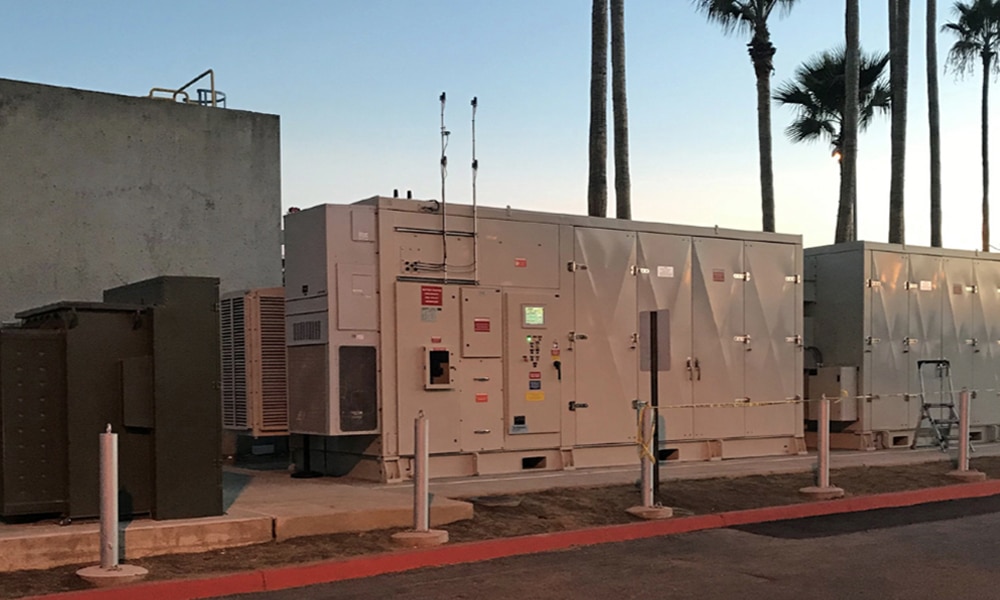Tap into California Battery Storage Incentives
Peak Power works with a wide range of commercial and industrial building owners, building managers, energy engineers, and facilities engineers to help reduce electricity costs and scope 2 emissions, while tapping into lucrative California battery storage incentives.
In 2022, California enacted sweeping and broad legislation to make historic cuts to pollution, emissions, and fossil fuel consumption. The California Climate Commitment lays out some aggressive targets with broad-reaching implications across the state economy. These commitments include cutting air pollution by 71% and reducing demand for aggregate fossil fuels by 86%.
There are several new laws that relate to these aggressive goals. Everything from a 90% clean electric grid (SB-1020, the Clean Energy, Jobs, and Affordability Act of 2022) and a prohibition of gas-powered car sales by 2035. AB-1279, The California Climate Crisis Act, sets an unprecedented target to reach economy-wide carbon neutrality by no later than 2045, and to become a greenhouse gas (GHG) emissions sink past that date. This means we get into negative GHG territory in the state.
To achieve this goal, California will need to cut emissions by 40% from 1990 levels by 2030, and by 85% from 1990 levels by 2045. The Act requires a scoping plan be enacted by the California Air Resource Board to include a variety of strategies around carbon removal, capture, storage, and utilization.
The California government is passing some of the most aggressive climate and energy legislation in the world. It is bringing forward lucrative battery storage incentives as the state recognizes batteries as a major technology to power the shift to clean energy.
There’s a vast network of battery storage incentives to power the shift to distributed energy resources (DERs), but these incentives can be hard to navigate and complex to understand.
With the right strategies, commercial and industrial players can unlock profitability, tap into multiple value streams and incentives, and make progress toward net zero.
Download this California Energy Incentives Guide so you can get a scan of the financial benefits that could be available to your business.


This innovative energy storage system is believed to be the first project of its kind to operate under FERC Order 841 and the CPUC’s decision on multi-use applications.
The battery is located behind the manufacturing site’s retail meter with San Diego & Gas Electric so it can provide energy services for the facility like demand charge management and time-of-day rate shifting. It’s also equipped with a CAISO meter and RIG so it can be an energy resource for the California grid.
This through-the-meter application of battery storage enables it to operate as a behind-the-meter or a front-of-the-meter resource.
Kearny Mesa, California
Mitsubishi
$394,105
1000 kW / 4000 kWh

This innovative energy storage system is believed to be the first project of its kind to operate under FERC Order 841 and the CPUC’s decision on multi-use applications.
The battery is located behind the manufacturing site’s retail meter with San Diego & Gas Electric so it can provide energy services for the facility like demand charge management and time-of-day rate shifting. It’s also equipped with a CAISO meter and RIG so it can be an energy resource for the California grid.
This through-the-meter application of battery storage enables it to operate as a behind-the-meter or a front-of-the-meter resource.
Kearny Mesa, California
Mitsubishi
$394,105
1000 kW / 4000 kWh

Kearny Mesa, California
Mitsubishi
$394,105
1000 kW / 4000 kWh
2081 Center Street,
Berkeley, California
94704
© 2016-2024 Peak Power Inc. All Rights Reserved. Terms & Conditions | Privacy Policy | AODA Statement